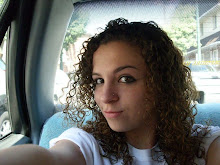What does it mean, then, when Horatio confirms the truth of the appearance of the Ghost?I considered Marcellus's, Bernardo's, and Horatio's relation to Hamlet referring to Scene ii (page 17; line 163) when Hamlet says he considers Horatio an equal. It is not so much as rank, but Horatio is an honest person and good friend to the late Hamlet's son who Marcellus and Bernardo believe the ghost to be. With that in mind I believe that is why they ask Horatio for his "scholar" opinion. With the sight of the ghost and the recollection of Fortinbras it can be foreshadowed as what is to come: young Fortinbras and Hamlet fighting for land.
In scene ii, Claudius's philosophy on life --at least that's what I'd like to call it-- to Hamlet about understanding death and to persevere grief and not take it to heart is suspicious to Hamlet. Claudius also brings up the late Hamlet's death, lightly touches on his marriage to his widow, and abruptly pushes it aside to talk about Fortinbras. I believe he brings up the death and the marriage because there is no way of denying it or ignoring it but "changes the subject" because he has something to hide. This is what Hamlet sees and calls on it. Yes, Claudius and Gertrude prove a good point about perseverance, but Hamlet saw no tears and it hasn't even been two months since his father's death. Horatio's testimony of Hamlet's father's ghost in arms has Hamlet perceiving foul play or crime disclosed. By what Claudius has said in scene ii, I can see him as a strong character in the play. Manipulative is how I would describe him and Hamlet is the only one who can see through that.
I have one particular question on page 10; line 2 about the phrase "memory be green." If anyone could help me out on that...
And if you're wondering where I got my title (it's about a minute long):
http://www.youtube.com/watch?v=SCVc5TaPpe8
Last Action Hero
